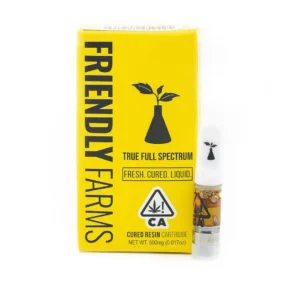In recent years, the conversation around cannabis has shifted significantly, revealing a host of benefits that extend beyond its recreational use.”

10 Benefits of Cannabis: Cannabis, commonly referred to as weed, has been used for centuries across different cultures. Nowadays, as more research comes to light, we’re beginning to see the vast array of advantages it offers. This article delves into ten compelling benefits of weed, highlighting how it can positively impact various aspects of life. the
Table of Contents
10 Benefits of Cannabis Are!!!
1. Pain Relief
Natural Pain Management
10 Benefits of Cannabis 1, Cannabis has long been used as a natural remedy for pain relief, offering an alternative to traditional pharmaceuticals.
The cannabinoids found in cannabis interact with the body’s endocannabinoid system to alleviate pain. Whether dealing with chronic pain from conditions like arthritis or acute pain from injuries, many find significant relief with cannabis. Unlike opioids, cannabis has a lower risk of addiction and fewer side effects, making it a safer option for many.
Pain is a common and often debilitating condition that affects millions of people worldwide. Whether it’s chronic pain from conditions like arthritis, fibromyalgia, and multiple sclerosis, or acute pain from injuries and surgeries, finding effective pain relief is crucial for maintaining quality of life. While traditional pharmaceuticals, such as opioids and nonsteroidal anti-inflammatory drugs (NSAIDs), are commonly used for pain management, they come with a host of potential side effects and risks, including addiction and gastrointestinal issues. This is where cannabis presents itself as a viable and natural alternative for pain relief.

Interaction with the Endocannabinoid System:
10 Benefits of Cannabis : The human body has an endocannabinoid system (ECS), which plays a crucial role in regulating various physiological processes, including pain sensation. The ECS consists of cannabinoid receptors (CB1 and CB2), endogenous cannabinoids (endocannabinoids), and enzymes responsible for their synthesis and degradation. Cannabis contains phytocannabinoids, such as THC and CBD, which interact with these receptors to modulate pain and inflammation.
THC (Tetrahydrocannabinol):
THC is the primary psychoactive component of cannabis. It binds to CB1 receptors in the brain and nervous system, which are involved in pain perception. By activating these receptors, THC can alter the way pain signals are processed, reducing the sensation of pain. This makes THC particularly effective for neuropathic pain, which is often resistant to conventional painkillers.

CBD (Cannabidiol):
Unlike THC, CBD does not produce psychoactive effects. Instead, it interacts with CB2 receptors, which are predominantly found in the immune system and peripheral tissues. By modulating these receptors, CBD can reduce inflammation and pain without the “high” associated with THC. CBD also influences other non-cannabinoid receptors, such as serotonin and vanilloid receptors, which play a role in pain regulation.
Anti-Inflammatory Properties:
Chronic inflammation is a significant contributor to pain in conditions like arthritis and Crohn’s disease. Cannabis, particularly strains high in CBD, has potent anti-inflammatory properties. By reducing inflammation at the source, cannabis can alleviate pain and improve mobility for individuals with inflammatory conditions.
Example:
A study published in the European Journal of Pain found that topical CBD application significantly reduced inflammation and pain in animal models of arthritis. This suggests that cannabis-based treatments could be effective in managing inflammatory pain in humans.
Muscle Relaxation:
Muscle spasms and cramps can cause severe pain and discomfort, often seen in conditions like multiple sclerosis and spinal cord injuries. Cannabis has muscle-relaxant properties that can help reduce the frequency and intensity of muscle spasms.
Example:
A clinical trial published in the journal Neurology found that cannabis extract significantly reduced spasticity and pain in patients with multiple sclerosis. This highlights the potential of cannabis to improve the quality of life for individuals with neuromuscular disorders. Note the 10 Benefits of Cannabis
-
 Sour Diesel 10g$100.00
Sour Diesel 10g$100.00 -
 West Coast Cure$25.00
West Coast Cure$25.00 -
 Rove$20.00
Rove$20.00 -
 Zaza 10g$100.00
Zaza 10g$100.00 -
 Vape Pens$20.00
Vape Pens$20.00 -
 Xanax$50.00
Xanax$50.00
Opioid-Sparing Effects:
10 Benefits of Cannabis: The opioid epidemic has highlighted the need for safer alternatives for pain management. Cannabis has been shown to have opioid-sparing effects, meaning it can enhance the pain-relieving effects of opioids, allowing for lower doses and reducing the risk of addiction and overdose.
Example:
10 Benefits of Cannabis: A study published in the Journal of Pain found that patients using medical cannabis for chronic pain reported a 64% reduction in opioid use. This significant decrease underscores the potential of cannabis to serve as an adjunct therapy in pain management, reducing the reliance on opioids.
Personalization and Strain Selection:
10 Benefits of Cannabis: One of the unique advantages of cannabis for pain relief is the ability to personalize treatment. With various strains available, each with its own cannabinoid and terpene profile, individuals can find specific strains that work best for their type of pain. For example:
Indica Strains:
Known for their sedative effects, Indica strains are often recommended for nighttime use and conditions involving chronic pain and insomnia. Strains like Granddaddy Purple and Northern Lights are popular choices.
Sativa Strains:
Sativa strains are typically more energizing and are suitable for daytime use. They can be beneficial for pain management while maintaining alertness and focus. Strains like Jack Herer and Durban Poison are well-regarded for their pain-relieving properties.
2. Reduces Anxiety and Stress
10 Benefits of Cannabis 2: Anxiety and stress are pervasive issues in today’s fast-paced world, affecting millions of people globally. The pressures of daily life, work, and personal responsibilities can lead to overwhelming feelings of anxiety and stress. Traditional treatments, such as medications and therapy, can be effective, but they also come with their own set of challenges, including side effects and accessibility issues. This is where cannabis comes into play as a viable alternative.
Cannabis contains compounds known as cannabinoids, with THC (tetrahydrocannabinol) and CBD (cannabidiol) being the most well-known. These cannabinoids interact with the body’s endocannabinoid system, which plays a crucial role in regulating mood, sleep, and stress responses. Here’s how cannabis helps in reducing anxiety and stress:
THC is the psychoactive compound in cannabis that induces a feeling of euphoria. This “high” can temporarily distract from the worries and stresses of daily life, providing a mental escape. It acts on the brain’s reward system, releasing dopamine, which is a neurotransmitter associated with pleasure and relaxation.
CBD, on the other hand, is non-psychoactive and known for its calming effects. It works by modulating the body’s response to stress, reducing the production of cortisol (the stress hormone). This can lead to a more balanced and less reactive emotional state. CBD has been found to have anxiolytic (anxiety-reducing) properties, making it especially beneficial for individuals with anxiety disorders.

3. Improves Sleep
10 Benefits of Cannabis 3: Struggling with sleep disorders like insomnia can be exhausting, but cannabis has shown promise in helping individuals achieve restful sleep.”
Cannabis, particularly indica strains, is known for its sedative effects, helping individuals fall asleep faster and stay asleep longer. For those who suffer from insomnia or other sleep disorders, cannabis can be a game-changer, providing a much-needed solution to improve sleep quality and overall health.

4. Enhances Creativity
10 Benefits of Cannabis: Artists and creators often turn to cannabis to unlock new levels of creativity and innovation.
The mind-altering effects of cannabis can break down conventional thought patterns, leading to novel ideas and fresh perspectives. This is particularly beneficial for artists, writers, and other creatives who seek inspiration and wish to push the boundaries of their work.

5. Supports Weight Management
10 Benefits of Cannabis 5: Contrary to popular belief, certain strains of cannabis can aid in weight management by influencing appetite and metabolism.
While the “munchies” are a well-known side effect of cannabis, research shows that regular cannabis users tend to have lower body mass indexes (BMIs). Cannabis can help regulate insulin production and caloric intake, making it a useful tool for those looking to manage their weight effectively.

6. Anti-Inflammatory Properties
10 Benefits of Cannabis 6: Cannabis is known for its anti-inflammatory properties, making it a potential treatment for conditions like arthritis and Crohn’s disease.”
The cannabinoids in cannabis have been shown to reduce inflammation, which is at the root of many chronic diseases. By targeting inflammation, cannabis can help alleviate symptoms and improve the quality of life for individuals suffering from inflammatory conditions.

7. Improves Focus and Concentration
10 Benefits of Cannabis 7: In moderate doses, cannabis can improve focus and concentration, helping users stay on task.”
Sativa strains of cannabis are known for their energizing effects, which can enhance focus and concentration. This can be particularly beneficial for individuals with ADHD or those who need an extra boost to stay productive throughout the day.
8. Provides Neuroprotective Effects
10 Benefits of Cannabis 8: Research suggests that cannabis has neuroprotective properties, which could be beneficial for diseases like Alzheimer’s and Parkinson’s.”
Cannabis has been found to protect brain cells from damage and reduce the progression of neurodegenerative diseases. This makes it a promising option for individuals looking to preserve cognitive function and prevent the onset of neurological disorders.
9. Alleviates Nausea
10 Benefits of Cannabis 9: Cannabis is widely recognized for its ability to alleviate nausea, particularly in patients undergoing chemotherapy.”
The antiemetic properties of cannabis make it effective in reducing nausea and vomiting. This is especially important for cancer patients undergoing chemotherapy, as it helps them maintain their appetite and overall well-being during treatment.
10. Improves Mood On 10 Benefits of Cannabis
10 Benefits of Cannabis 10: Cannabis has mood-enhancing effects that can help improve overall well-being and happiness.
In the quest for better mental health and emotional well-being, cannabis stands out as a natural option that can significantly improve mood. This benefit is particularly important in an era where depression and other mood disorders are becoming increasingly prevalent. Let’s delve deeper into how cannabis enhances mood and contributes to a more positive outlook on life.
Interaction with Neurotransmitters:
Cannabis influences the brain’s neurotransmitter systems, particularly those involving serotonin and dopamine. Serotonin is often referred to as the “feel-good” neurotransmitter because of its critical role in regulating mood, sleep, and anxiety. Dopamine, on the other hand, is associated with pleasure and reward. THC and CBD, the primary cannabinoids in cannabis, interact with these neurotransmitter systems to enhance mood and promote feelings of well-being.
Reduced Symptoms of Depression:
10 Benefits of Cannabis: Research has shown that cannabis can help alleviate symptoms of depression. For instance, a study published in the Journal of Affective Disorders found that cannabis significantly reduced ratings of depression in medical marijuana users. The ability of cannabis to modulate mood can be particularly beneficial for those with depression, providing them with a natural means to manage their symptoms.
Enhanced Emotional Processing:
10 Benefits of Cannabis: Cannabis can enhance the processing of emotions, making it easier for individuals to handle and express their feelings. This emotional clarity can lead to better relationships and a more balanced emotional state. By fostering a deeper connection with one’s emotions, cannabis can contribute to improved mental health and happiness.
Enhanced Emotional Processing:
10 Benefits of Cannabis: Cannabis can enhance the processing of emotions, making it easier for individuals to handle and express their feelings. This emotional clarity can lead to better relationships and a more balanced emotional state. By fostering a deeper connection with one’s emotions, cannabis can contribute to improved mental health and happiness.
After learning about the 10 Benefits of Cannabis i hope you can jump to my page and purchase
Research and Personal Stories: Numerous studies and personal anecdotes highlight the mood-enhancing effects of cannabis. For example, a study in the journal Neuropsychopharmacology found that THC can produce transient increases in positive mood states. Furthermore, many individuals report significant improvements in mood and emotional well-being after incorporating cannabis into their routine, particularly when other treatments have failed.

Final Thoughts
10 Benefits of Cannabis: The advantages of cannabis are diverse and far-reaching, offering potential benefits for various aspects of health and well-being.
Leave a remark on what you think about the 10 Benefits of Cannabis
Closing Remark: “As research continues, the positive impact of cannabis on our lives becomes increasingly apparent, making it a valuable addition to our wellness toolkit. By understanding and embracing its benefits, we can improve our quality of life in various ways.”
-
Adderall
Original price was: $200.00.$195.00Current price is: $195.00. -
Alprazolam
$10.00 -
Bloom
$20.00 -
Brownies
Original price was: $100.00.$99.00Current price is: $99.00. -
Cocaine 1.2g
$100.00 -
Ecstasy
-
Edibles
$50.00 -
Friendly Farms
$20.00 -
Gelato strain 10g
$100.00
Frequently Asked Questions (FAQ)
Is cannabis safe to use?
Yes, when used responsibly and in moderation, cannabis is generally safe. However, it’s good to consult with a healthcare provider, especially if you have underlying health conditions or are taking other medications.
Can I get addicted to cannabis?
While cannabis has a lower risk of addiction compared to substances like alcohol and opioids, it is possible to develop a dependence. Responsible use and understanding of your limits.
How can cannabis improve my mental health?
Cannabis can help reduce anxiety, stress, and depression by interacting with the brain’s neurotransmitters. It’s good to choose the correct strain and dosage for your needs.
What are the best strains for pain relief?
Indica strains are typically more effective for pain relief due to their higher CBD content. Strains like ACDC, Harlequin, and Northern Lights are popular choices.
Are there any side effects of using cannabis?
Common side effects include dry mouth, dizziness, and changes in appetite. These effects are usually mild and temporary. Starting with a low dose can help mitigate these side effects.
Can I use cannabis while taking other medications?
It’s crucial to consult with your healthcare provider before combining cannabis with other medications to avoid potential interactions.
Is cannabis legal in my state?
Cannabis laws vary by state and country. It’s important to check the local regulations in your area to ensure compliance with the law.










I have really learned new things from your blog post Also a thing to I have recognized is that in most cases, FSBO sellers will reject you Remember, they can prefer never to use your products and services But if anyone maintain a stable, professional romance, offering support and keeping contact for around four to five weeks, you will usually manage to win a business interview From there, a house listing follows Thanks a lot [Reply]
This was amazing I hope everyone finds this amazing
excellent issues altogether, you simply won a new reader.
What may you recommend in regards to your submit that you maqde a few days in the past?
Any sure? https://zeleniymis.com.ua/